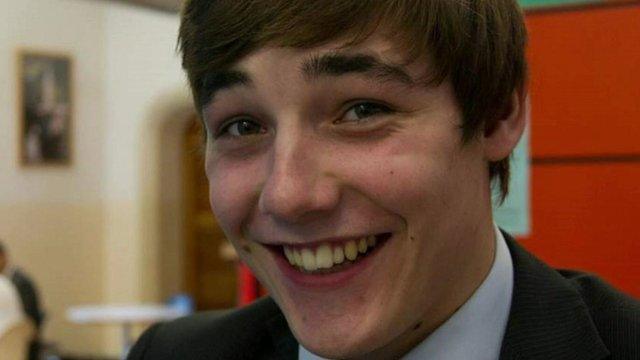Meningitis B vaccine offered to all babies from September
- Published
- comments
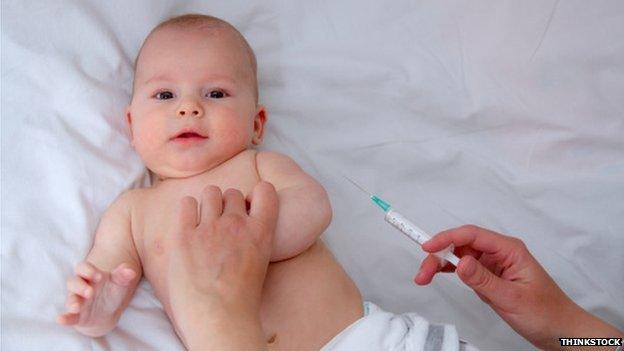
Babies are most at risk of meningitis B infection
All newborn babies in England and Scotland are to be offered a vaccine to combat meningitis B from September, the government has announced.
The Men B vaccine, external will be given to babies at two months, four months and 12 months old.
The scheme, which has been delayed by cost disputes, is the first national and publicly-funded programme against the deadly infection in the world.
Meningitis charities said the move would "save lives" straight away.
From August, another meningitis vaccine - Men ACWY, external - will be offered to 17 and 18-year-olds and students starting university this year.
Negotiations over the cost of the new baby vaccine were finally resolved in March, meaning the Men B programme will be rolled out in England and Scotland from 1 September, with Wales and Northern Ireland expected to follow suit shortly afterwards.
Karen Crockatt, whose daughter Sofia survived meningitis, welcomes the new vaccine
The vaccine will be offered alongside other routine infant vaccines through the NHS childhood immunisation programme, external, the Department of Health and Scottish Government said.
Tests suggest that the new Men B vaccine, called Bexsero, will protect against around 90% of the meningococcal group-B bacteria strains circulating in the UK.
Meningitis B is a bacterial infection that particularly affects babies under the age of one and is also common in children under five.
The disease infects the protective membranes surrounding the brain and spinal cord. If the infection is left untreated, Men B can cause severe brain damage and blood poisoning - and in some cases, it can kill.
About 1,200 people - mainly babies and children - get meningitis B each year in the UK, with around one in 10 dying from the infection, according to NHS figures, external.
'Delighted'
Public health minister Jane Ellison said: "I am very proud that we will be able to offer families extra peace of mind with these new vaccination programmes from this summer.
"The nationwide meningitis B programme will mean that England leads the world in offering children protection from this devastating disease."
And Scottish Health Secretary Shona Robison said: "These two new vaccination programmes will offer families in Scotland extra peace of mind.
"We're delighted to be one of the first countries in the world to introduce a nationwide Men B vaccination programme to help tackle the effects of this disease, which can be devastating for children and their families."

What is meningitis?
Meningitis is an infection of the meninges - the membrane that surrounds the brain and spinal cord
Meningococcal bacteria are common and carried harmlessly in the nose or throat by about one in 10 people
They are passed on through close contact
Anyone can get meningitis but babies and young children are most vulnerable
Symptoms include a high fever with cold hands and feet, agitation, confusion, vomiting and headaches

Nick Crockatt's daughter Sofia survived meningitis at the age of two in 2007, but had to have her left leg amputated just above her ankle and her right foot amputated at the ankle.
He told BBC Breakfast that "it was probably the worst days of our lives."
Her mother Karen added: "We have long awaited this decision and campaigned very hard. Unfortunately we've lost some children along the way and lots have been very poorly like Sophia, but I think it's fantastic news."
Danny Sweatman, from Norfolk, lost two brothers to meningitis. Since then the family has raised £80,000 for meningitis research and he told BBC Radio 5 live there was lots of campaigning still to do.
"So we'll never stop. It keeps us busy. It keeps our minds focused on meningitis itself and ensuring that other families don't go through what we have been."
'Stay vigilant'
Meningitis Now, which has campaigned to get the Men B vaccine free on the NHS, welcomed the announcement.
Chief executive Sue Davie said: "We're delighted that this milestone in the journey to introduce these vaccines and protect our babies and young people from the devastation meningitis causes has been reached.
"These measures will start to save lives straight away and for years to come."
But she warned that there were still meningitis strains for which there were no vaccines.
"It's vital to learn the signs and symptoms, stay vigilant and seek immediate medical help if you suspect the disease."
Symptoms include a high fever with cold hands and feet, confusion, vomiting and headaches. Most children will make a full recovery with early diagnosis and antibiotic treatment but about one in four of those who survive is left with long-term problems, such as amputation, deafness, epilepsy and learning difficulties.
Vaccine for students
The Men ACWY vaccine - which protects against four different types of meningitis: A, C, W and Y - will be given to all 17 and 18-year-olds in England and Scotland from August.
The programme will also offer the vaccine to young people aged 19 to 25 who are starting university later this year.
The vaccine will protect them against meningitis W (Men W) disease, which has seen a sharp rise in cases as a result of a particularly deadly strain of Men W bacteria.
These age groups are at high risk of infection because of close contact in shared accommodation, such as university halls of residence.
Health officials in Northern Ireland said there were plans to get funding in place to introduce the Men ACWY and Men B programmes in line with the rest of the UK.
In Wales, a Men ACWY vaccination programme for teenagers and young people is still under consideration.
- Published18 February 2016
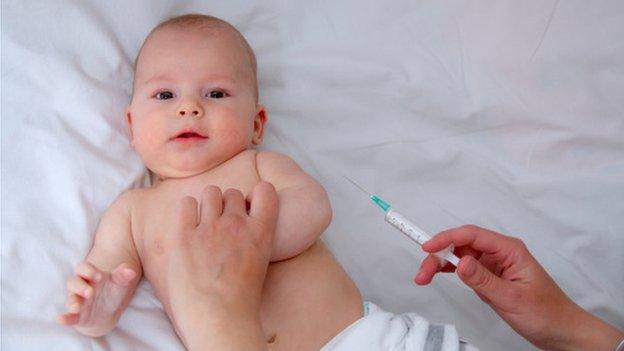
- Published21 March 2015
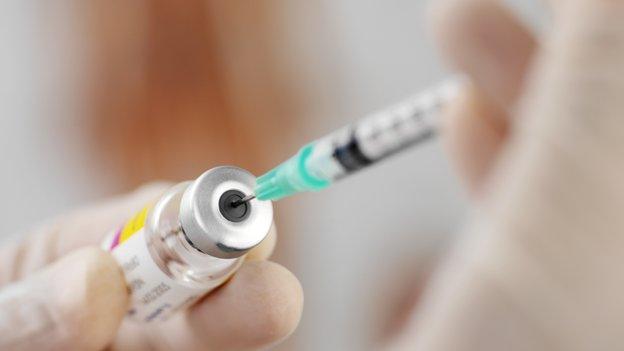
- Published21 March 2014
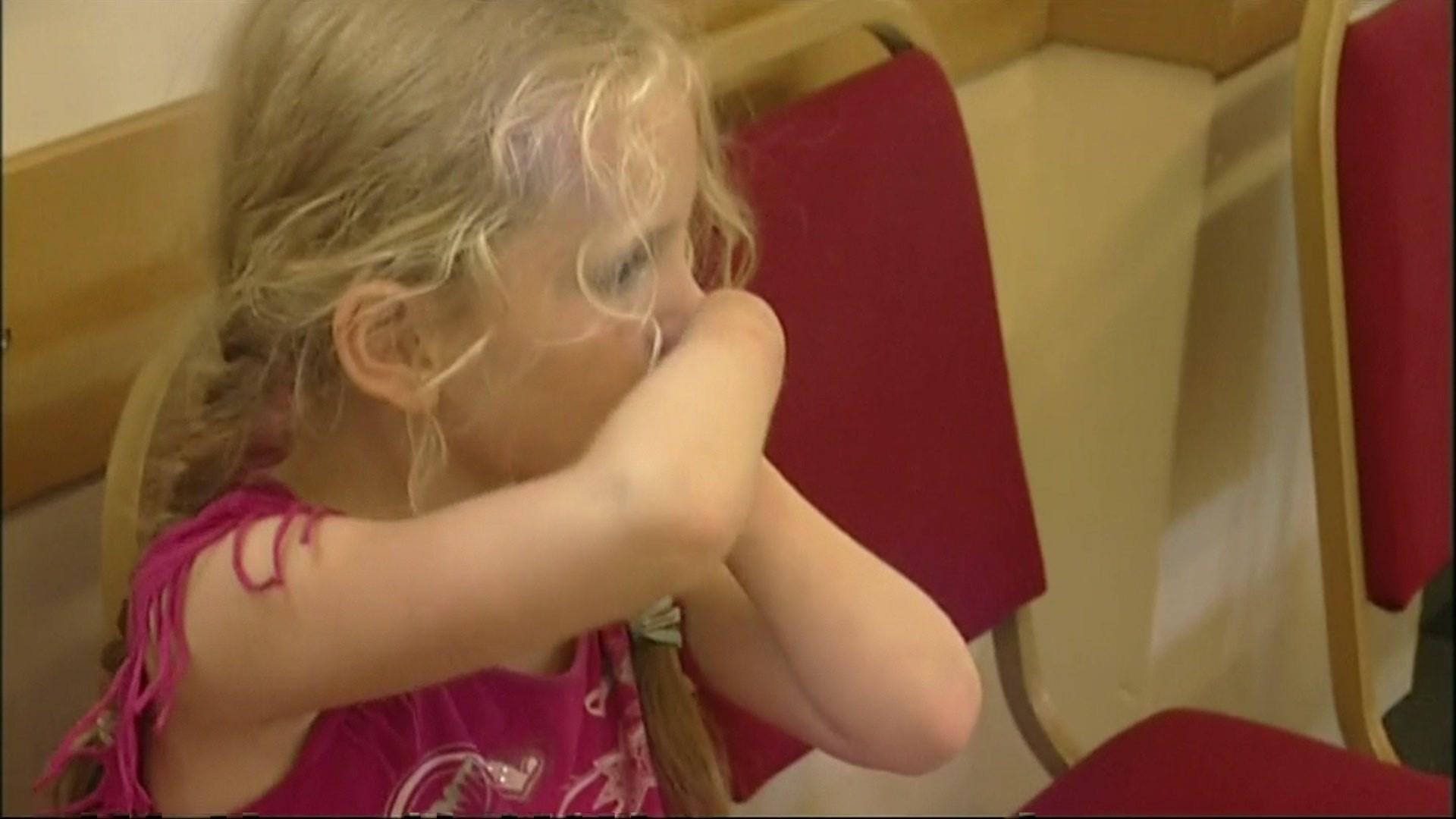
- Published21 March 2014
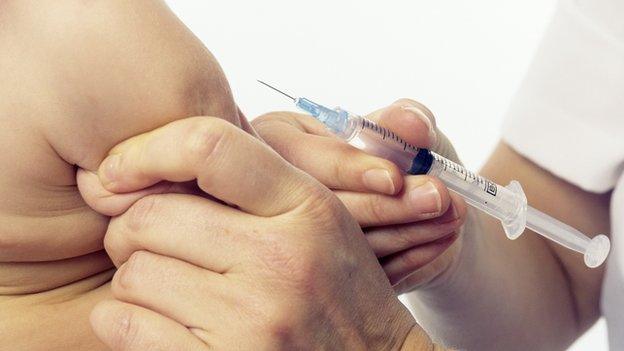
- Published16 March 2015
